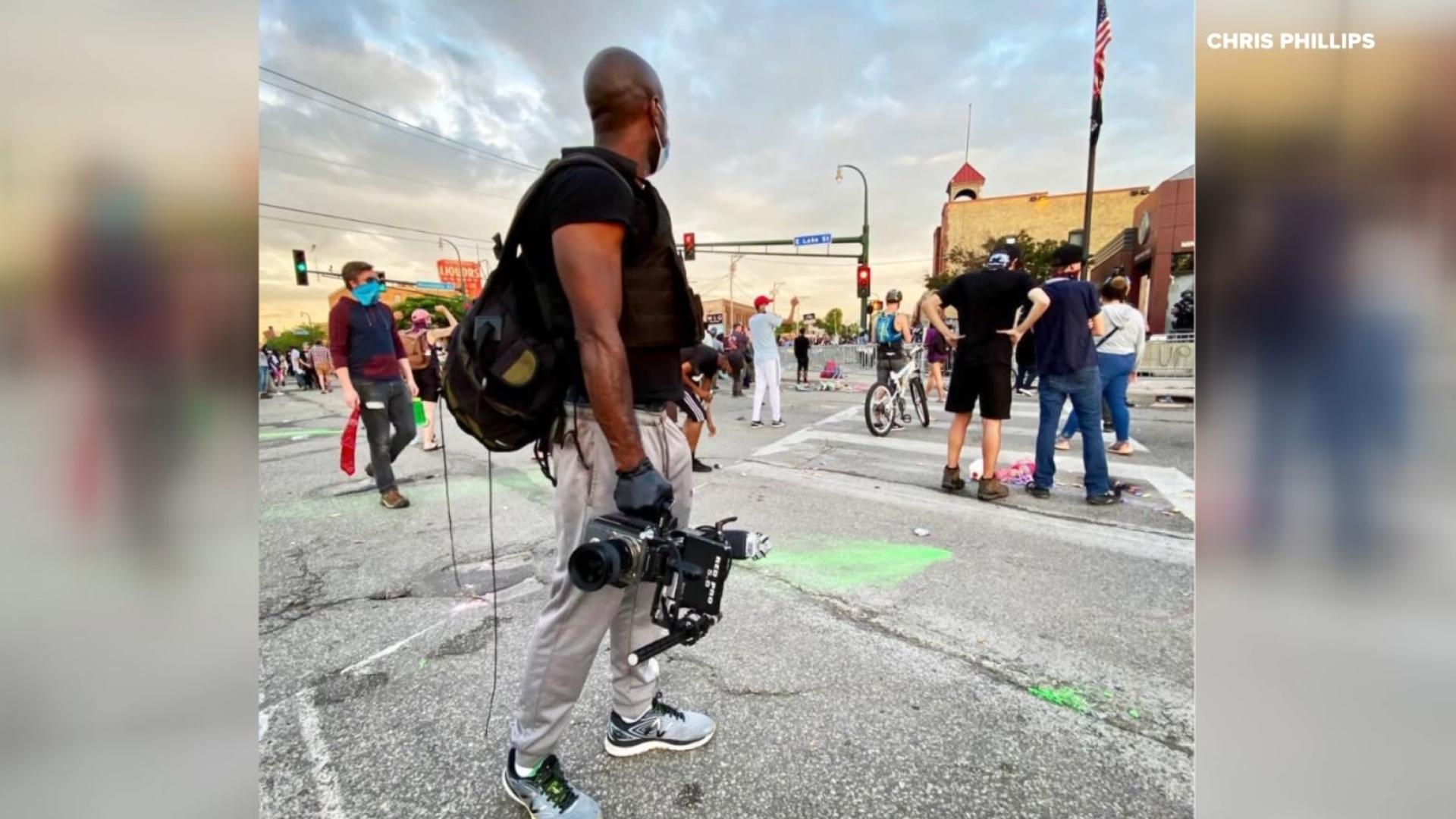FERGUSON, Mo. — One event can change the trajectory of a person's life, and certainly, the unrest that followed after the death of Michael Brown greatly affected a Ferguson filmmaker.
Christopher Phillips lived in the Canfield Apartments for years, right in the heart of Ferguson's Third Ward. He spent much of that time paying a higher monthly rent simply to have the freedom of going month-to-month. He had spent years trying to move but was too busy trying to break into film and television.
"I was just in my little one-bedroom apartment, doing multiple things, working multiple jobs," said Phillips. "I just didn't have the time to look for a new apartment and things like that."
But on August 9, 2014, when 18-year-old Michael Brown was shot and killed by police, it brought protests right to Phillips' front door. "When that shooting happened, I was just like, 'I can't leave now.'"
Phillips said he started shooting video on the second day of protests and never looked back. As he was documenting the community response to Brown's death, he realized he needed to utilize storytelling for the common good. He started looking into systemic and institutionalized issues that served as catalysts to Brown's shooting. He tried to provide context and nuance to complex issues. He added a perspective from the inside, out.
"For me, I understood how important it was having lived in Ferguson," said Phillips, who had also experienced racism and systemic challenges growing up in the city. It wasn't just about documenting what was happening around him. His goal was to spark change, and for the next decade, he recorded how Ferguson shaped national conversations centered around racial justice.
Phillips created a short documentary called Ferguson 365, which got picked up at a dozen festivals, domestically and internationally. It won awards for taking a deeper look at the racial divide in Missouri and how the once-Caucasian suburb transformed into the community it is today, predominantly Black.
All the while, Phillips has faced costly and painful challenges. Police in Ferguson arrested him in 2015 while recording a protest in Ferguson. He and others claimed they also confiscated cameras and destroyed footage, which five people challenged in a federal lawsuit. In 2020, Phillips traveled the country covering unrest after the killings of George Floyd and Breonna Taylor, both at the hands of police officers. Police pepper sprayed him at another protest in Ferguson in 2020, and Phillips also went viral while shooting a peaceful Black Lives Matter protest in the Central West End.
"I had a moment where I was filming when the protesters walked past [the McCloseky's house], and there's this shot of me pointing my camera at her [Patricia McCloskey] and she's pointing her gun at me."
Patricia and Mark McCloskey went viral after pointing their guns at protestors as they marched through the Central West End. The protestors were attempting to march to the home of then-mayor Lyda Krewson. The McCloskeys drew their guns on the protestors, which launched them into the national spotlight, which later included a failed senate attempt for Mark and misdemeanor charges for the couple.
"For me, the end game is peace," said Phillips. "It's been a blessing, but there's ups and downs to it, you know. I've been fortunate enough to be profiled by the Washington Post, and Aljazeera, and lend my voice to the conversation."
Phillips also works with corporations for inclusion work. That might mean making a Black excellence video for Adidas or producing a video about a cultural celebration.
Phillips is also working on a project that has yet to be announced, though it likely looks at social justice in retrospect. Even after a decade of compiling stories, he feels the work is needed now more than ever. And, for him, it all begins in Ferguson.
"I pray that God uses me in the way that he sees fit so that it helps other people," said Phillips. "Ferguson is really a microcosm of a national epidemic and problem. Not everything has a happy ending, but we hope to get to that place."

